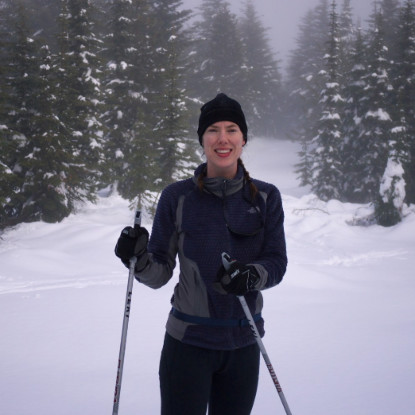I am an associate professor in the Biology Department at 91勛圖厙 University. I spent most of my formative years in Helena, Montana, though did acquire a bit of an accent from a few years in Jackson, Mississippi. I received my B.A. in Biology from Carleton College in Northfield, Minnesota, and my Ph.D. in Zoology from the University of Washington. When I'm not harassing marmots, turtles, or birds, I like to hike, cross-country ski and bake the occasional cake.
Dr. Addis will not be taking new research students in fall 2025, spring 2026, or summer of 2026.
Since the days of R.A. Fisher and David Lack, scientists have been using life history theory to predict trade-offs between lifetime fitness and energetic demands. These trade-offs can be manifested in a multitude of ways: for example, between lifetime fecundity and lifespan, between the number and size of offspring, or between investing in parental care and maximizing offspring number. A great number of theoretical and empirical studies have investigated and documented these trade-offs in laboratory and wild systems. However, we still have very little understanding of the mechanisms that control different life history strategies and how these mechanisms evolve. Interactions between an organism’s external and internal environment influence life history strategies; therefore, an organism’s environment, physiology, and genetic heritage must be taken into account to understand both the mechanisms controlling life histories and how these mechanisms evolve.
I am interested in how organisms respond to their biotic and abiotic environments. More specifically, my research investigates mechanisms underlying life-history strategies. Taking a holistic approach, my work combines ecological and hormonal measurements in the field with genetic and hormonal analyses in the laboratory. I broadly use vertebrates (birds, other reptiles, and more recently mammals) to explore these mechanisms.

